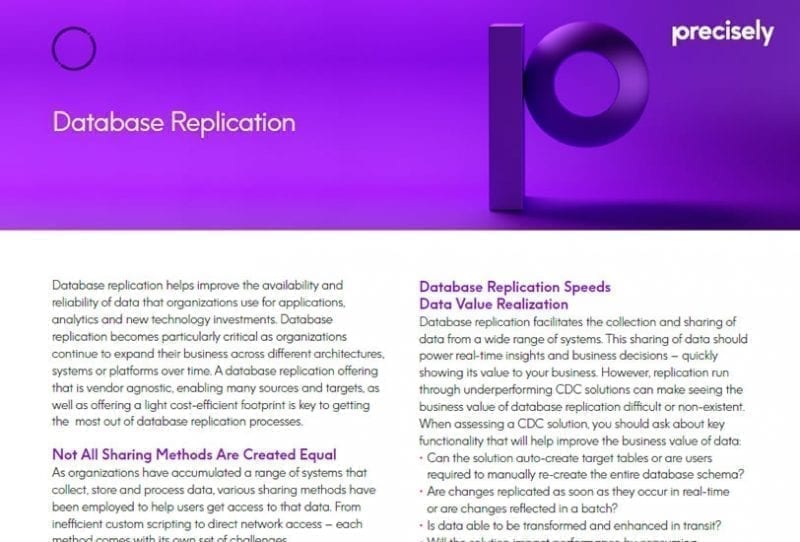Solution Sheet
Database Replication
Database replication helps improve the availability and reliability of data that organizations use for applications, analytics and new technology investments. Database replication becomes particularly critical as organizations continue to expand their business across different architectures, systems or platforms over time. A database replication offering that is vendor agnostic, enabling many sources and targets, as well as offering a light cost-efficient footprint is key to getting the most out of database replication processes.
Not All Sharing Methods Are Created Equal
As organizations have accumulated a range of systems that collect, store and process data, various sharing methods have been employed to help users get access to that data. From inefficient custom scripting to direct network access – each method comes with its own set of challenges.
Database Replication Speeds Data Value Realization
Database replication facilitates the collection and sharing of data from a wide range of systems. This sharing of data should power real-time insights and business decisions – quickly showing its value to your business. However, replication run through underperforming CDC solutions can make seeing the business value of database replication difficult or non-existent. When assessing a CDC solution, you should ask about key functionality that will help improve the business value of data:
- Can the solution auto-create target tables or are users required to manually re-create the entire database schema?
- Are changes replicated as soon as they occur in real-time or are changes reflected in a batch?
- Is data able to be transformed and enhanced in transit?
- Will the solution impact performance by consuming production database resources versus running on another system?
Achieve better control over assets and budgets
- Protect performance of production database by offloading data to a reporting system for queries, reports, BI and analytics
- Consolidate databases, data marts or data warehouses for business processing or comprehensive analysis
- Synchronize branch offices and keep siloed databases in sync in real-time
- Feed customer or partner applications and only provide specific data relevant to that customer or partner
